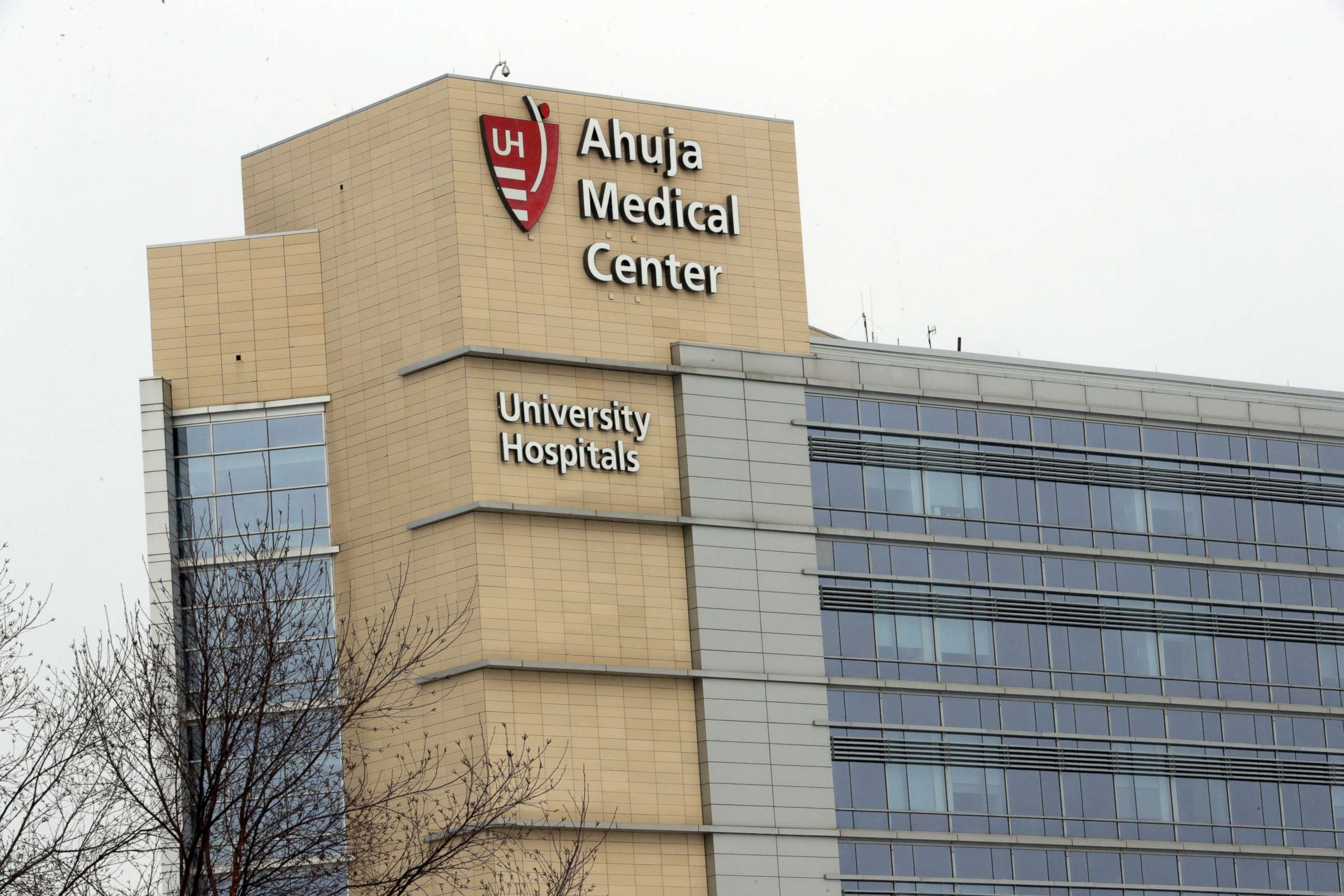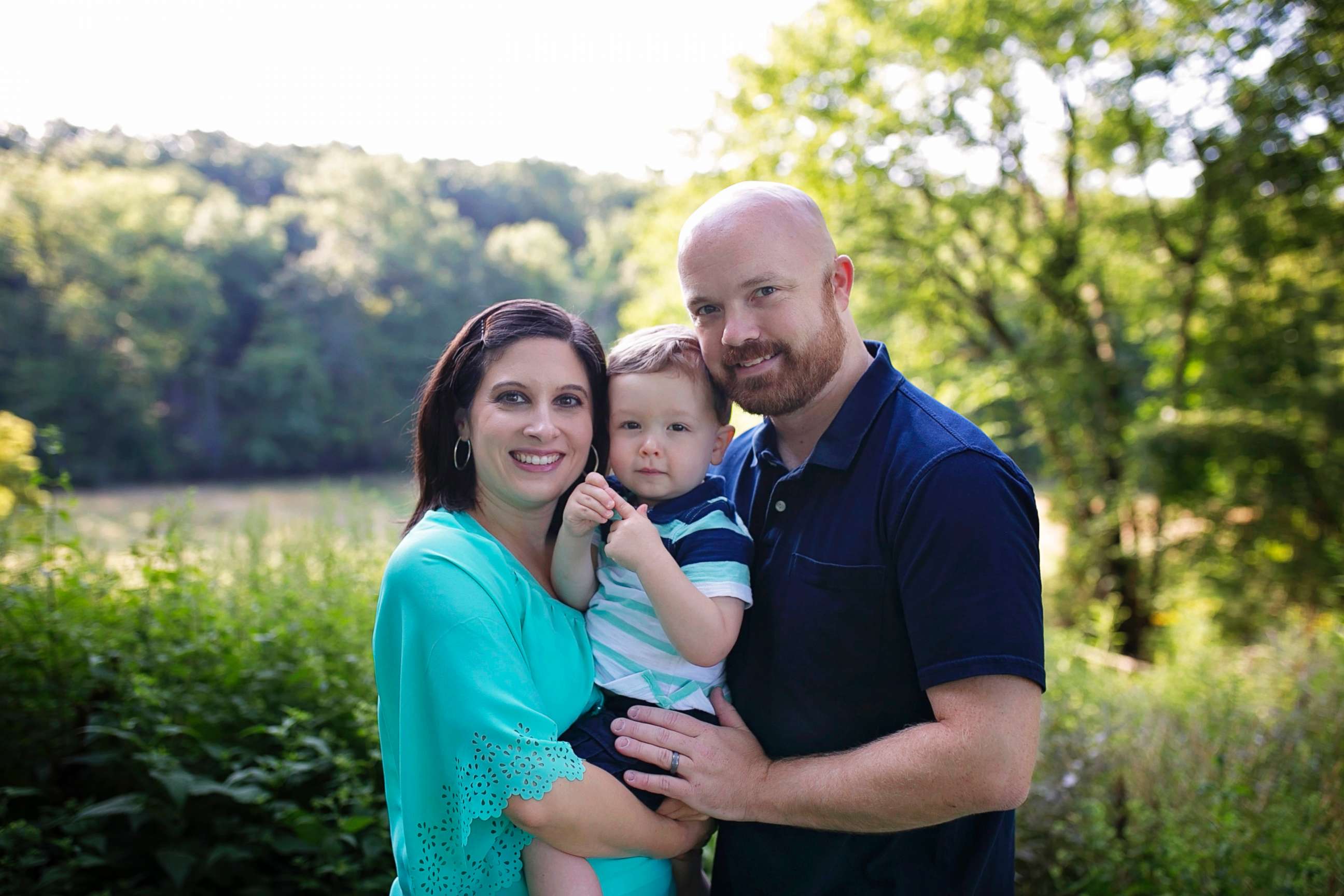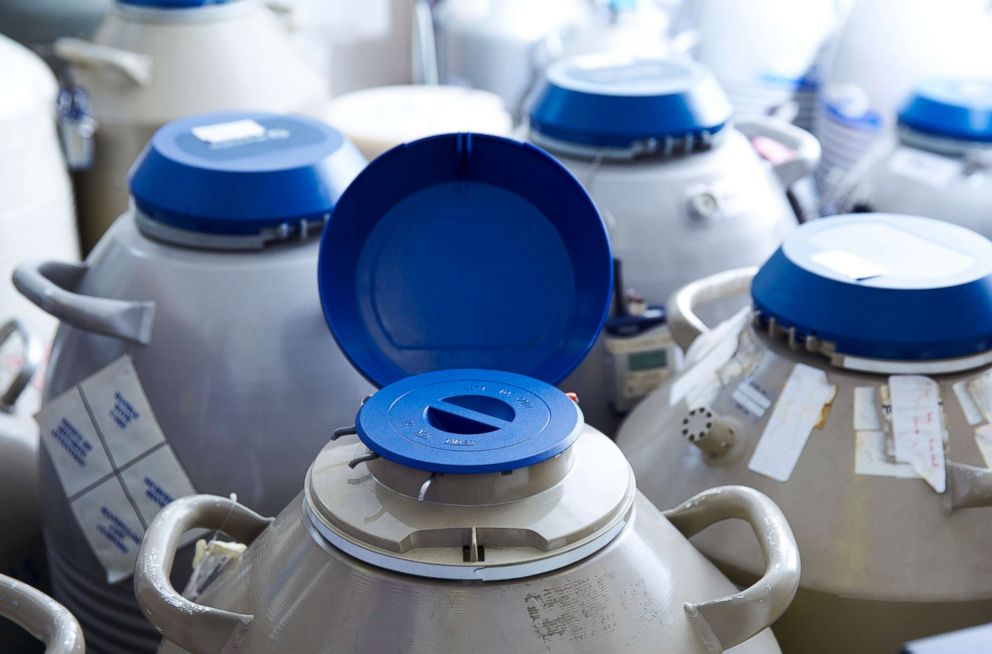More than 4,000 eggs, embryos affected in storage tank failure, hospital says
University Hospitals in Cleveland, Ohio, said Monday that it miscalculated its initial estimates of eggs and embryos affected by a rare storage tank malfunction.
In a letter to patients, University Hospitals CEO Tom Zenty said that the "catastrophic failure" that occurred between during the weekend of March 3 to March 4 affected more than twice the amount first estimated.
He wrote in the letter, "We have determined that the total number of affected eggs and embryos for these patients is more than 4,000, not the estimate of 2,000 previously used."
"We are heartbroken to tell you that it's unlikely any are viable," he added.
The CEO also made a plea in a recorded statement posted on Tuesday that apologized for the lapse, saying, "We know we made mistakes."
"We had a terrible situation at our fertility clinic where eggs and embryos were jeopardized by a temperature fluctuation in one of our cryostorage tanks," he said. "My thoughts and heart immediately went out to our patients. This was overwhelming news for them, women and men who counted on us."
Coincidentally, ABC News was first to report that on the very same day University Hospitals suffered a storage tank failure, Pacific Fertility Center in San Francisco experienced similar temperature fluctuations with its own inventory of egg and embryo assets.

At the time, Dr. Carl Herbert, president and medical director at the Pacific Fertility Center in San Francisco, told ABC News that in his 35 years of cryopreservation it is an "an unusual event" where two clinics and two liquid nitrogen storage tanks where the tissues are stored "failed."
Both the Cleveland and San Francisco clinics have each been hit with separate class-action lawsuits, ABC News reported.

“You put so much faith into the physicians and the medical team and, like I said, to have this taken away -- your hopes and dreams destroyed. It’s a tremendous loss,” Amber Ash, one woman who, along with her husband, Elliott, is suing University Hospitals Fertility Center, told ABC affiliate WEWS.
Zenty explained in the letter that several issues led to the storage tank failure.
He noted that the remote alarm system on the tank that is meant to keep tabs of any kind of "temperature swings" was off.
"We don't know when the remote alarm was turned off, but it remained off through that weekend, so an alert wasn't sent to our employee as the tank temperature began to rise on Saturday night, when the lab wasn't staffed," he wrote.
Zenty admitted that it's unclear who turned the alert system off and that "we are still seeking those answers."
Also, Zenty wrote in the letter that the failed tank "needed preventative maintenance" because the function that automatically adds liquid nitrogen to the tank to keep the specimens frozen had been experiencing difficulties for several weeks prior to the tank's failure.
Employees were manually filling the tank because of the issues with the autofill function, but the levels of nitrogen that "were monitored and appeared to be appropriate on Friday and Saturday" likely were insufficient, Zenty said.
The investigation is continuing, Zenty said.

The clinic, Zenty said in the recorded statement, has been working with outside experts, as well as cooperating with the Ohio Department of Health and also the College of American Pathologists to "assess and investigate the situation."
He wrote that he hopes these efforts will help regain the public's confidence in the clinic going forward.
"We know many families want and need the fertility services we provide," he said. "And we're committed to making the changes that will allow them to turn to us again with confidence."




